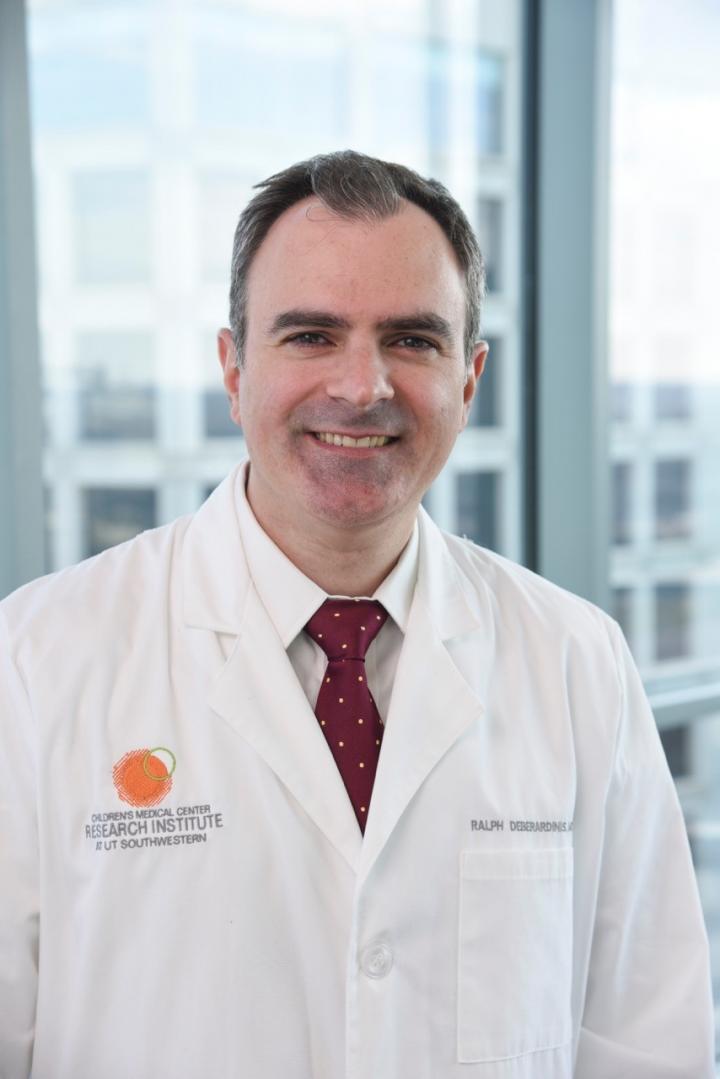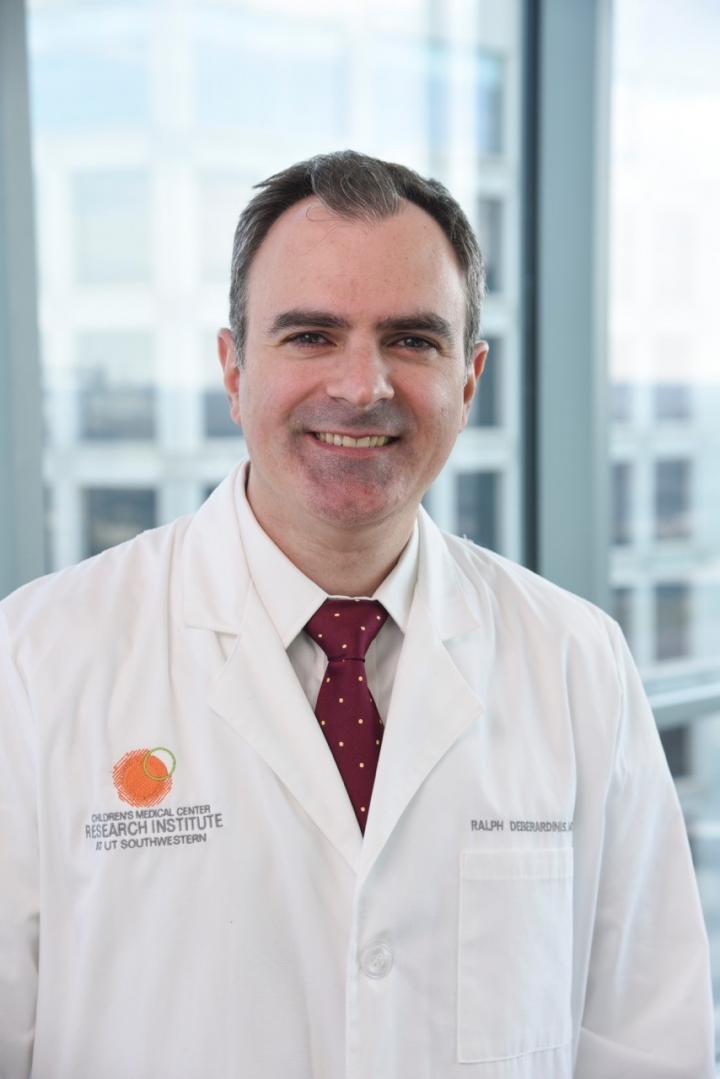
Credit: UT Southwestern
DALLAS – June 28, 2018 – Researchers at the Children's Medical Center Research Institute at UT Southwestern (CRI) have discovered a new metabolic vulnerability in small cell lung cancer (SCLC) that can be targeted by existing drug therapies.
View video: Small Cell Lung Cancer: Discovering New Metabolic Pathways
SCLC is a deadly and aggressive form of lung cancer with few therapeutic options and an incredibly low five-year survival rate of 5 percent. Researchers at CRI believe the key to finding new therapies for this disease lies in better understanding the metabolism of SCLC.
Cancerous cells reprogram their metabolic pathways to grow and spread rapidly through the body. In some forms of cancer, cancer cells become highly dependent or "addicted" to specific metabolic pathways as a result of genetic mutations. Identifying these pathways can lead to new treatment options.
"SCLC metabolism has not previously been studied in-depth," said Dr. Ralph DeBerardinis, Professor at CRI and Director of CRI's Genetic and Metabolic Disease Program. "If we identify the metabolic pathways SCLC uses to grow and spread, then maybe we can find drugs to inhibit them. This could effectively cut off the fuel supply to these tumors."
To discover new vulnerabilities in SCLC, researchers at CRI analyzed metabolism and gene expression in cells obtained from more than 25 human SCLC tumors. From the data, they identified two distinct categories of SCLC defined by the level of two oncogenes: MYC and ASCL1. Oncogenes are genes known to promote cancer formation and growth.
The study, published in Cell Metabolism, found that MYC stimulated synthesis of purine molecules. Purines are essential for cells to produce RNA and DNA, both of which are required for growth and division. MYC-expressing cells had a particular need for a specific type of purine called guanosine.
"We were excited to discover that purine synthesis was so important for this subset of SCLC cells. There are already safe and effective inhibitors of guanosine synthesis used in patients for other diseases besides cancer. Our findings suggested that mice with MYC-expressing SCLC might benefit from treatment with drugs that inhibit purine synthesis," said Dr. Fang Huang, a visiting scholar at CRI and first author on the paper.
To test the hypothesis, researchers treated mice from multiple different mouse models of SCLC with the drug mizoribine, a purine synthesis inhibitor. Treatment with this drug suppressed tumor growth and significantly extended the lifespan in mice with MYC-expressing SCLC.
"Our findings suggest purine synthesis inhibitors could be effective in SCLC patients whose tumors have high levels of MYC. If we are right, this could quickly provide a new treatment for this disease, which has few options at present," said Dr. DeBerardinis.
###
Dr. DeBerardinis, recently selected to be a Howard Hughes Medical Institute (HHMI) Investigator, is affiliated with the Eugene McDermott Center for Human Growth and Development and the Harold C. Simmons Comprehensive Cancer Center. He is a practicing physician and Division Director of Pediatric Genetics and Metabolism at Children's Health. He is also the Chief of the Division of Pediatric Genetics and Metabolism at UT Southwestern, where he holds the Joel B. Steinberg, M.D. Chair in Pediatrics and is a Sowell Family Scholar in Medical Research.
The National Institutes of Health, the HHMI, the V Foundation for Cancer Research, the Cancer Prevention and Research Institute of Texas, The Welch Foundation, and donors to the Children's Medical Center Foundation supported the research.
About CRI
Children's Medical Center Research Institute at UT Southwestern (CRI) is a joint venture of UT Southwestern Medical Center and Children's Medical Center Dallas, the flagship hospital of Children's Health. CRI's mission is to perform transformative biomedical research to better understand the biological basis of disease. Located in Dallas, Texas, CRI is home to interdisciplinary groups of scientists and physicians pursuing research at the interface of regenerative medicine, cancer biology, and metabolism. For more information, visit: cri.utsw.edu. To support CRI, visit: cri.utsw.edu/support/
About UT Southwestern Medical Center
UT Southwestern, one of the premier academic medical centers in the nation, integrates pioneering biomedical research with exceptional clinical care and education. The institution's faculty has received six Nobel Prizes, and includes 22 members of the National Academy of Sciences, 16 members of the National Academy of Medicine, and 15 Howard Hughes Medical Institute Investigators. The faculty of more than 2,700 is responsible for groundbreaking medical advances and is committed to translating science-driven research quickly to new clinical treatments. UT Southwestern physicians provide care in about 80 specialties to more than 100,000 hospitalized patients, 600,000 emergency room cases, and oversee approximately 2.2 million outpatient visits a year.
Media Contact
Katie Regan
[email protected]
@UTSWNews
http://www.swmed.edu
Original Source
https://www.utsouthwestern.edu/newsroom/articles/year-2018/lung-cancer-cri.html





